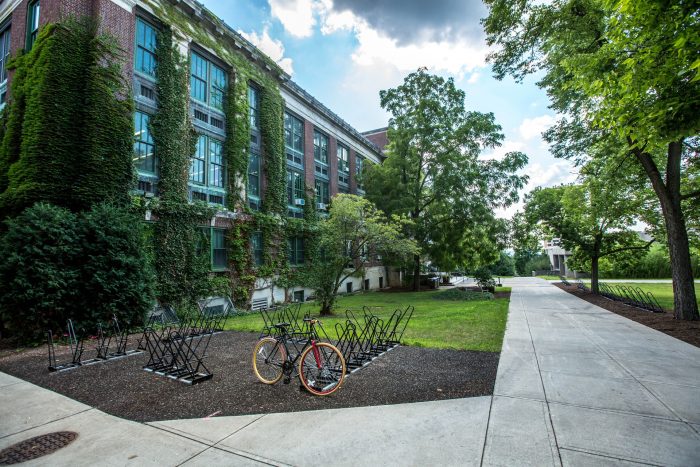
For most people, going to college will be one of the biggest and most exciting steps towards independence and adulthood. Choosing your institution, your degree, and your classes gives you newfound control over your direction in life. If you move away for your studies, you can even reinvent yourself for this new stage of life. Reinventing yourself can take many forms. Something like changing your name can be a fun and exciting way to do that. If you happen to be moving to California for school, here are some great resources on how to change your name in California. Between the freedom, the opportunities, and the self-discovery, college is a brilliant adventure—but it’s one with plenty of turbulence throughout. College is a massive financial and career commitment with many social obstacles and new challenges that can blindside you if you’re not ready, so it’s best to have an idea of what’s coming in your first year and prepare accordingly.
1. Have Your Finances in Order
For many young adults, the first year of college is the milestone at which parents expect them to be financially independent, either partially or fully. Your parents might expect you to find a job and earn some grants or scholarships with your grades. Plenty of students each year rely on multiple forms of financial aid, and you might be one of them. But your first year often involves a big academic workload, and that’s tough to balance with a full-time job, let alone have any leisure time left over. One of your best and most reliable options to help with financing is a private student loan, which can cover your costs without the need for a full-time job and allow for plenty of time to party or relax. You can click here to find out more about how a private student loan can work for you.

2. Keep a Cool Head
A lot of movies and TV shows depict the wild and bizarre adventures you’ll have with lifelong friends, but a lot of them gloss over the awkward steps you take before getting there. If you’re moving away or studying abroad, you might not know anyone on campus, and the first group of people you approach will almost certainly not become your perfect circle of buddies. You might be part of some truly awkward icebreaker exercises in your first dorm or your first semester classes; you might go to a club meeting interested in joining and not really click with anyone there. You might just have trouble finding someone who shares interests with, and all of these are perfectly okay. If you struggle for a bit to find your crew, don’t panic; it happens to the most charming first-years out there. One of the best things you can do for yourself is to avoid feeling desperate and stay true to your identity, even if the social pressure to change is huge.
3. Know Your Campus
Juggling homework and social events has you worried you’re developing anxiety, and you want to talk to someone about it; is there anywhere on-campus you can go? You received an email saying you need to hand in some documents regarding your private student loans; where do you take them? You’re an international student, and you want to ask about internships for non-citizens; what do you do? Many of these questions will be answered during your orientation, but if they aren’t, it’s important you familiarize yourself with the campus. Do you have a health and wellness center? Is there a gym? Where’s your campus security located, and what number do you call if you need their help? Many institutions offer a host of resources on-campus to make new students’ adjustment as easy as possible, and if you know where those resources are when the time comes, you’ll feel far less stressed and lost.

4. Avoid Burnout
It’s Saturday evening, and you’re close to pulling your hair out; you have three papers due next week, four club meetings on Monday, and a ton to read. You have a party tonight you cannot miss, too, and you made plans for a date on Tuesday, and…Stop! One of the easiest mistakes to make is taking on too much at once and burning out. You should definitely look to get involved and make the most of your time, but make sure you’re giving yourself time to relax and rest. Missing a club meeting here and there is fine, and your date can be rescheduled; chances are if they’re upset about rescheduling, it’s a bullet dodged anyway. If you burn yourself out, especially at the height of being busy, it can drag you down even further and put you behind on your studies, so remember to leave yourself plenty of hours a week to simply sit back and unwind.
5. Find an Advisor
Many small institutions will require that every student has an academic advisor, but many others, especially state schools, might be too large for that to be feasible. Regardless, if you’re able, you should still try to get to know a professor you admire and see if they’re willing to advise you. Most of us start college while still in our teens, and choosing our whole career path at that age can be daunting; you might not be sure yet, and that’s okay. You can relieve some of that pressure by talking to a professor who can help you resolve doubts and find the specific degree you want to pursue. If your school requires you have an advisor, that’s fantastic. Talk to them frequently, and don’t be afraid to ask for help during hard times; if your school doesn’t offer academic advisors, get to know a lecturer you really like or admire, and ask if they would mind providing some guidance.

6. Explore Your Options and Yourself
You’ll likely have dozens of degrees to choose from, and you won’t have to commit to one for at least a year. Take classes in a field you’re considering for your degree; take classes just because you’re fascinated by the subject. Your classes shouldn’t all feel like a chore or a burden, and you have every right to be passionate about learning something that won’t be at all relevant to your future career. Similarly, this is a perfect time to really uncover and refine who you are as an adult. Find a list of all the clubs and societies on campus and see if you discover some new interests. You might love volleyball, improv, philosophy, theatre, baking, powerlifting, or Dungeons & Dragons, and you won’t know unless you try.








